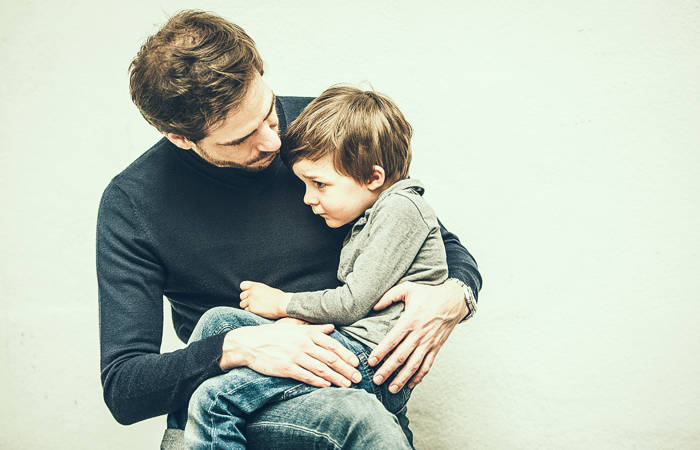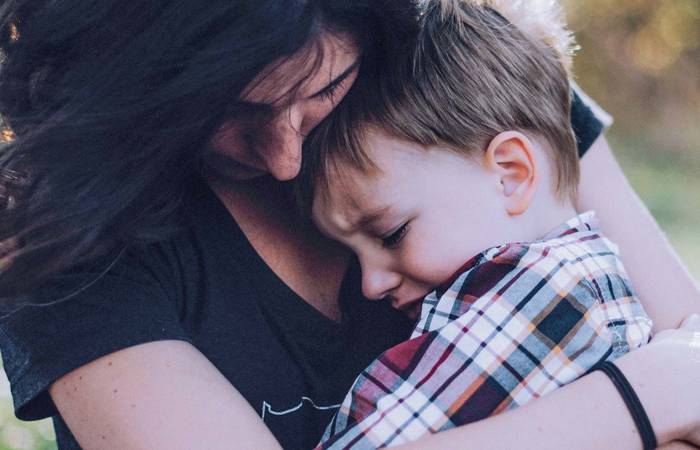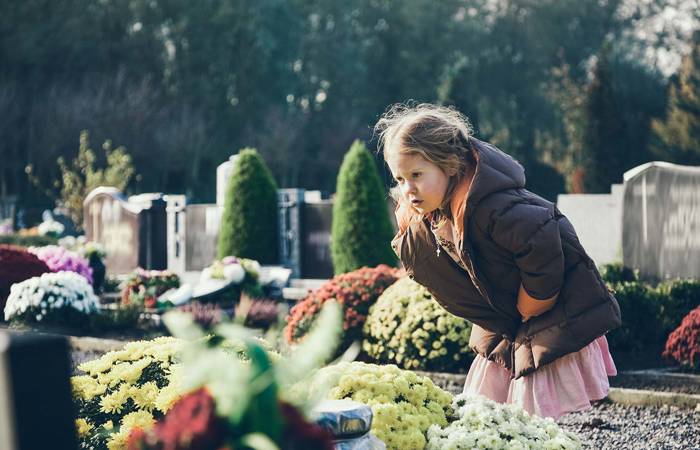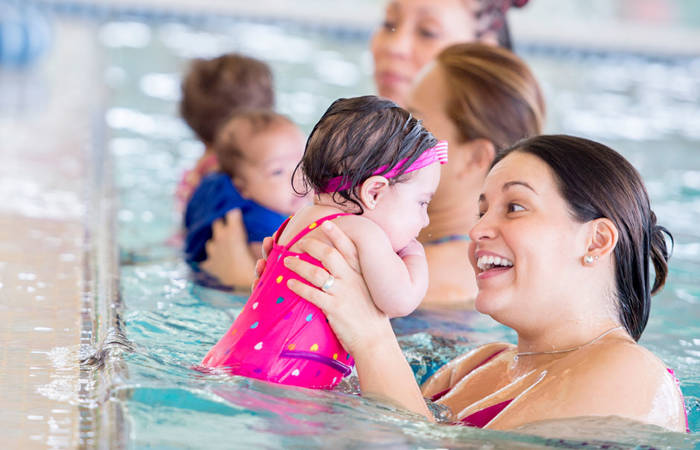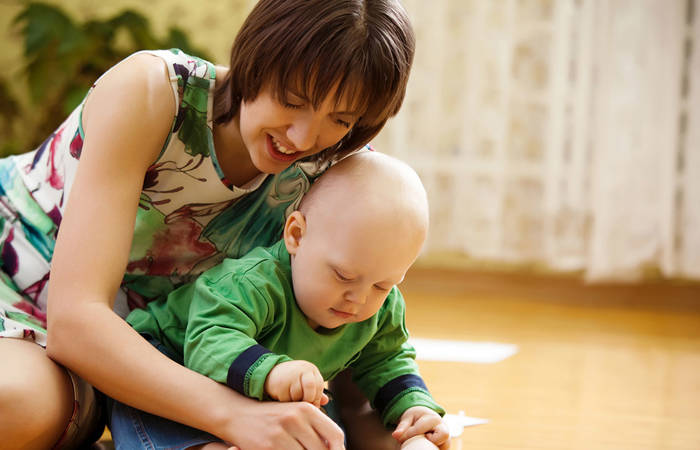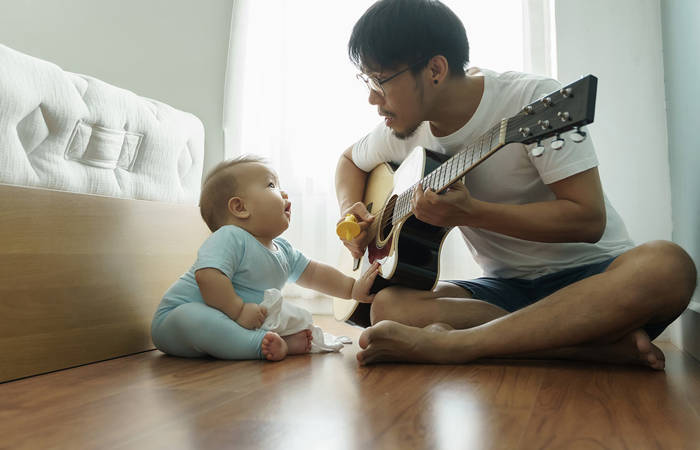Like what you see?
Sign up to receive more free parenting advice.
Thank you for subscribing to our newsletter!
Child Development
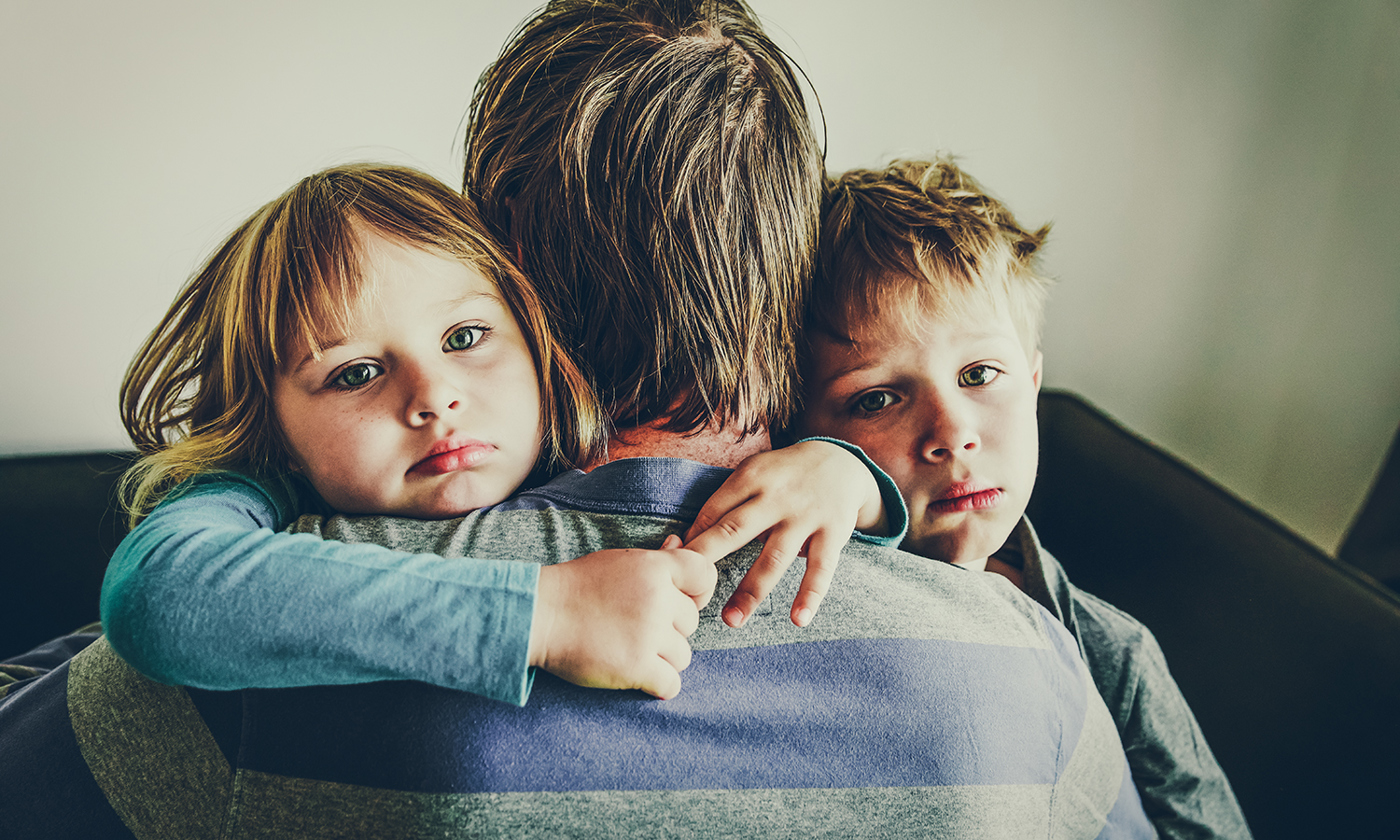
Credit: iStock.com/Nadezhda1906
Floods, fires, drought and other natural disasters can be traumatic for adults and children alike. But talking about them in the right way can help both you and your children.
Dr Andrea Baldwin is a Service Development Leader at the Queensland Centre for Perinatal and Infant Mental Health (part of Children’s Health Queensland). This team has spent years developing a set of resources to help families with young children prepare for, cope with and recover from natural disasters.
“We were seeing a lot of young children with stress reactions to the 2011 floods,” Dr Baldwin says.
“There was a definite increase in clinical symptoms: children were anxious, clingy, having tantrums, showing separation anxiety and oppositional behaviour. Going through a flood can make a child feel everything’s out of their control, and they react in different ways.”
The resulting website, Birdie’s Tree, provides storybooks explaining floods, fires, droughts, cyclones, and earthquakes. (Stories about heatwaves and epidemics are coming later in 2020, along with additional resources for educators.) There are also information sheets for parents, and themed games for children. All are being widely used by emergency responders, as well the disaster mental health teams working across Queensland.
Helping children prepare for natural disasters
A simple way parents can help children prepare for natural disasters is to teach them language to express their emotions.
“Even before children are talking, you can say things like, “I see you are feeling sad” and use words for big feelings. We can talk about feeling scared or lonely, sad, worried, upset or angry, as well as feeling cosy and safe. Emotional literacy helps equip children to cope with stress,” Dr Baldwin says.
While songs and rhymes also support early literacy, they are really helpful for emotional regulation.
“Parents can choose weather-related songs like I hear thunder or Incy Wincy spider – that’s actually a wonderful story about a spider being resilient,” Dr Baldwin says.
“We are teaching children that while bad things can happen, they are fairly rare. And if they do happen, we can cope. Helpers will come and things will get better – just take it step by step and look after each other, and we’ll be okay.”
The other preparation tool sounds simple but is really powerful: provide love.
“Feeling loved, supported, safe and secure in relationships with caring adults is key to children’s mental health and wellbeing. Disasters or not, they need to feel that a parent or caregiver will meet their needs, nurture and care for them,” Dr Baldwin says.
If a natural disaster is unfolding or imminent, it’s important to shield children from media coverage, especially when they are little.
“Do protect them from adult conversations, images and reporting that will only raise their anxiety. Instead, explain what’s happening in a calm, honest, age- appropriate way,” Dr Baldwin says.
Your own big feelings are valid and important, but remember your child can’t help you with them. Talk with an adult you trust – a friend or health professional. It’s important to look after yourself: you can’t care for others, including children, when you’re running on empty.Dr Andrea Baldwin
Stay up to date with the latest news and articles from First Five Years
Thank you for subscribing to our newsletter!
Helping children during a natural disaster
While a natural disaster is unfolding, children need help to support their emotional regulation. Sitting with them, talking quietly, reading stories and singing songs can be reassuring.
“If there’s a potentially dangerous situation and you need to keep watch, or evacuate, take the time to help your child feel safe. Explain where the family is going, and talk about what you’re taking with you,’ Dr Baldwin suggests.
During a natural disaster, young children may be unsettled by unfamiliar sights, sounds and smells.
“Listen to what your child’s behaviour is telling you about their concerns,” Dr Baldwin says.
“You can say things like, ‘Yes, aren’t those sirens noisy? The fire truck is telling cars to get out of the way, so the truck can get to the fire quickly. And that plane is dumping water to help put out the flames. It’s great that so many people are helping’.”
If evacuation is likely, make sure you’re prepared. Pack important items and keep them handy so you can leave quickly. Involve your child in this – their favourite toy, book or blanket will be a great comfort in an unfamiliar place.
Helping children recover after natural disasters
While families face many challenges after experiencing a natural disaster, some simple strategies help children cope. Although it’s hard to maintain normal family routines while living away from home, Dr Baldwin says it’s good to try.
“Aim for the usual bedtime and naptimes, with the usual song or story,” she advises. “Familiar people, objects, rituals and foods are all reassuring.”
In the recovery phase, Dr Baldwin encourages parents to let children know there’s no wrong way to feel and no wrong thing to say.
“Children communicate through their behaviour, especially little ones. They might be clingy or whiney, have tantrums, cry and be difficult to soothe. They might eat or sleep more or less than usual. They might even seem to ‘go backwards’ in their talking or toileting. These are all normal reactions to an unusual and stressful situation,” she says.
Being extra patient will help.
“Don’t go so far that you let go of normal rules and expectations, but just be understanding about those behaviours, knowing they are generally temporary,” Dr Baldwin says.
Parents may also need to help children understand that what happened wasn’t their fault.
“Three-year-olds are prone to magical thinking. After a cyclone they might think, ‘I yelled at mummy and then a big wind came’,” Dr Baldwin says.
Children benefit from knowing there will be a beginning, middle and end to the situation, and that ultimately things are going to be okay.
“You can acknowledge that while everything seems chaotic at the moment, life will go back to normal again, and adults will take responsibility for fixing things,” Dr Baldwin says.
She notes that anniversaries can be distressing for young children: they may see TV footage and think it’s all happening again.
Lastly, but importantly, through the stress of a natural disaster, parents need to take care of themselves.
“Your own big feelings are valid and important, but remember your child can’t help you with them. Talk with an adult you trust – a friend or health professional. It’s important to look after yourself: you can’t care for others, including children, when you’re running on empty,” Dr Baldwin says.

